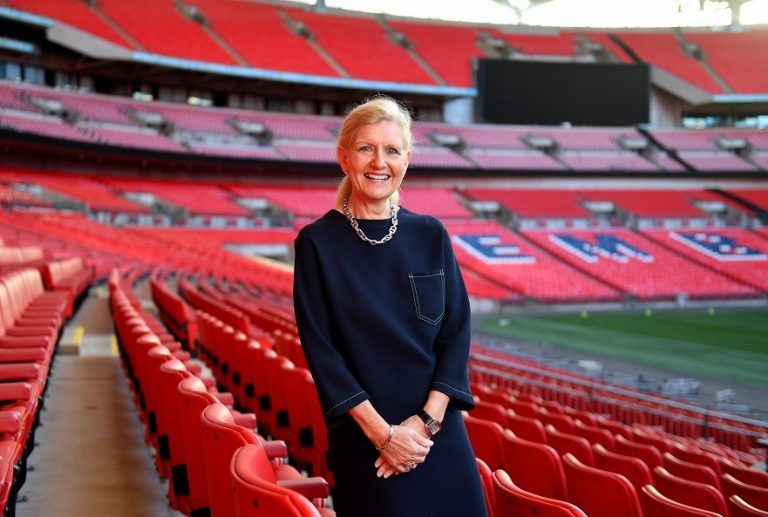Debbie Hewitt MBE, the Football Association’s first female chair and one of the UK’s most influential women, is to visit Nottingham Business School for the second of its Business Leaders Lectures series, in 2023.Debbie will give an overview of her non-executive and executive career in multiple industries, including Visa Europe Limited, Comparethemarket, and fashion retailer White Stuff Limited as she aims to dispel some of the common entrepreneurship myths. She will also cover her executive positions at Marks and Spencer plc as well her time as the first female Managing Director of RAC plc in its 125-year history. Attendees to the event will be able to ask Debbie questions at an open Q&A session. In 2021, British Vogue listed Debbie in the Vogue 25 – their annual list of the UK’s most influential women.Debbie holds an MBA with distinction from Bath University. She was awarded an MBE for services to Business and the Public Sector in the New Year Honours List in 2011. In September 2021, Debbie was awarded Chartered Companion of the Chartered Institute of Personnel Development (Chartered CCIPD), recognising outstanding and distinguished service to the people profession.
In July 2022 she was awarded the Honorary Degree Doctor of Business Administration by Nottingham Trent University, in recognition of her significant contribution to Business and the Public Sector.
Debbie Hewitt said: “I’m delighted to be speaking at Nottingham Trent University as part of their Business Leaders Lectures series. It’s a privilege to be able to speak to the next generation of business leaders and I’m looking forward to sharing the knowledge and experience that I’ve gained throughout my career, and to hearing their perspectives on how businesses might attract them in the future.”
The Business Leaders Lecture series is part of a programme of events organised by Nottingham Business School, part of Nottingham Trent University, to give students, the wider business community and alumni the opportunity to hear directly from people who lead public and private sector organisations which help shape the world around us.
The events aim to share insights about the lessons leaders have learned while confronting challenges, innovating and driving progress. Executive Dean of NBS, Professor Baback Yazdani, said: “The Business Leaders Lecture series is part of our commitment to ensuring that we combine that academic excellence with a positive impact on the world around us by sharing the lessons leaders have learned while confronting challenges, innovating and driving progress. We are delighted to have Debbie Hewitt to join us for our lecture later this month and share her experiences and insight from a long-spanning successful career in business.“During the pandemic we also added the NBS Business Leaders Podcasts which now has 30 episodes to enjoy as well. This a great bank of leadership knowledge that we bring to the public domain.”
The Business Leaders Lecture with Debbie Hewitt will take place from 5.30pm on Tuesday 25 April 2023 in NTU’s Newton building. The booking deadline is midday on Sunday 23 April 2023. Find out more and reserve your place here.












